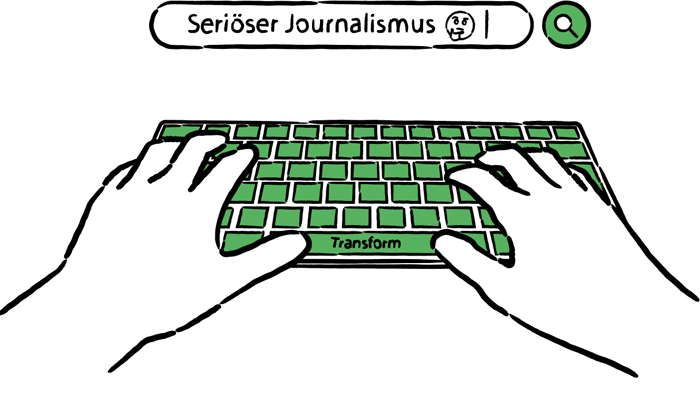Back to overview
Ulla Kramar-Schmid & Martin Thür, editor and presenter "ZiB 2"
#36 Do more research?
There are few constants in journalism, but the really important meetings, for some inexplicable reason, happen surprisingly often on a Sunday. Or public holiday.

Gigabytes of highly sensitive data are promised to us, no doubt a journalistic treasure. But before that, very practical problems have to be solved: Formatting hard drives, archiving data and making sure it can't be tapped from the outside.
You know: whistleblower protection.
Journalism is the best possible approach to the truth, says Watergate whistleblower Carl Bernstein. That truth has long had digital fingerprints. For investigative journalism, a pad and a pen are no longer enough. For a long time now, it has been about networked work, databases, cross-border connections. Before journalistic work can begin, files have to be verified and sorted, software installed and databases indexed. This is a challenge, journalistically, technically, but also communicatively.
Journalists, especially those who do investigative work, need additional knowledge. A well-filled telephone book is no longer enough. We have to work in a network, even beyond editorial and media boundaries, in order to process volumes of data and derive stories from them. Logically, these stories must also be depicted more where "real life" takes place today: In the digital space.
A media company in the 21st century must reflect this reality. Much has been achieved. And yet ORF still has a lot of work ahead of it.
One thing, however, has not changed - and will not change: Digital information, too, must be properly researched by journalists and processed in such a way that the - usually highly complex - contexts are understood. These are the constants of serious journalism, not only on a Sunday. Or public holiday.




 Gigabytes of highly sensitive data are promised to us, no doubt a journalistic treasure. But before that, very practical problems have to be solved: Formatting hard drives, archiving data and making sure it can't be tapped from the outside.
Gigabytes of highly sensitive data are promised to us, no doubt a journalistic treasure. But before that, very practical problems have to be solved: Formatting hard drives, archiving data and making sure it can't be tapped from the outside.